
I freak out when the media covers something that I have even a modest amount of specialized knowledge in. Why? Because the lamestream media almost always gets the story completely wrong. This leaves you to wonder what else the media is screwing up.
When people who know that I keep bees started texting me about the so-called “murder hornet” I smelled social media click bait trap. Even the allegedly reliable New York Times did a whole podcast on the Asian giant hornet (Vespa mandarinia) that consisted of an interview with a single beekeeper and a lot of scary music. Did any of these journalists, including the New York Times bother to call up an entomologist who specialized in hornets? Not so much.
Lynn Kimsey, director of the Bohart Museum of Entomology and professor of entomology, UC Davis Department of Entomology and Nematology had this to say,
The colony everyone is hyperventilating over was actually found on Vancouver Island, British Columbia, last September when it was destroyed and then a single, dead hornet was found in December in Blaine, Wash. There is no evidence that there are any more hornets in the vicinity of Vancouver or anywhere else on the West Coast.
So it’s not even recent news.
My inner Jungian doesn’t think it’s a coincidence that, during a pandemic that originated in Asia, we’d see a viral news story that contains the words “murder” and “Asian.” Could it be that the story of a scary, foreign insect acts as a way of deflecting, on a subconscious level, blame for our own stupidity in the face of a crisis we could well have been better prepared for? I also don’t think it’s any coincidence that the “Africanized” bee scare came around the same time as the infamous Willie Horton attack ad. I’m not asserting a simple causal relationship between insect scares and racialized politics, but let’s just say that our storytelling tends towards the monstrous (with race and class overtones) during times of crisis. The “murder” in the name isn’t even an accurate translation. The Japanese word actually means “yellow” reflecting the color of the insect.
Could the Asian giant hornet become a problem in North America? Yes. But there’s no evidence that it has yet. And, as this insect lives in forests, its habitat would be limited if it did. Giant Asian hornets don’t live in cities nor do they tolerate hot or cold weather.
If they do establish here, at least they are edible and, apparently, taste like French Fries according to entomologist Matan Shelomi. There’s pictures and harvesting directions to prove it if you follow the link. The murder hornet looks tasty when deep fried. But what doesn’t?
For more information see this fact sheet on the Asian giant hornet from Washington State University.
If you’d like to meme about “murder” hornets there’s a Facebook group for you.
There’s a term for when the media covers something that you have specialized knowledge in and the horror that ensues when you see how badly they get it wrong that I can’t recall and it’s bugging me (so to speak). This term/phrase is named after a best selling author who noted this phenomena–please leave a comment if you can help me remember!
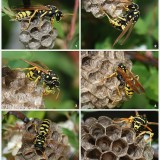
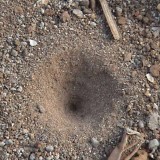
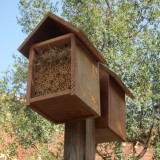
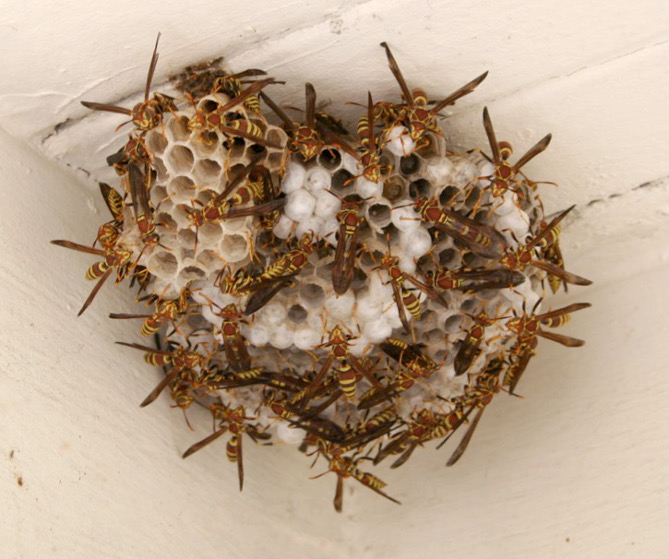
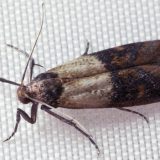
Thank you for this. I’ve been alarmed by the coverage of this as well.
Call up an “etymologist” who specialized in hornets?
You mean “entomologist”. A scientist who studies insects.
Thanks. I really need an editor.
Unless, of course, you are looking for the origins of the word “hornet”:)
Loving the comments this morning. Thank you Cindy for causing me to look up the etymology of hornet! Very funny.
You know, I’d be totally down to eat bugs. I was excited reading about cricket protein powders at first, but then I looked at the prices. They’re some of the most expensive proteins around! It seems insane, their strong point seems to be that they can be raised and processed for almost nothing.
I feel like everybody starting companies wants to be a boutique, high-end operation instead of the basic bitch suppliers we want.
Ha ha! The last time I was at the big Natural Products Expo there were some startups pushing bug protein. Maybe we need to DIY this one?
“Briefly stated, the Gell-Mann Amnesia effect is as follows. You open the newspaper to an article on some subject you know well. In Murray’s case, physics. In mine, show business. You read the article and see the journalist has absolutely no understanding of either the facts or the issues. Often, the article is so wrong it actually presents the story backward—reversing cause and effect. I call these the “wet streets cause rain” stories. Paper’s full of them.
In any case, you read with exasperation or amusement the multiple errors in a story, and then turn the page to national or international affairs, and read as if the rest of the newspaper was somehow more accurate about Palestine than the baloney you just read. You turn the page, and forget what you know.”
– Michael Crichton (1942-2008)
Thank you Anon! That’s it!
I live on Vancouver Island not far from where local bee keepers found and destroyed the hornet nest. There was a few local stories in the paper (they do look impressive) but they were just referred to as Giant Asian hornets, and no one got too excited. Who started calling them Murder hornets?
The BBC. And thanks for the Vancouver Island report!